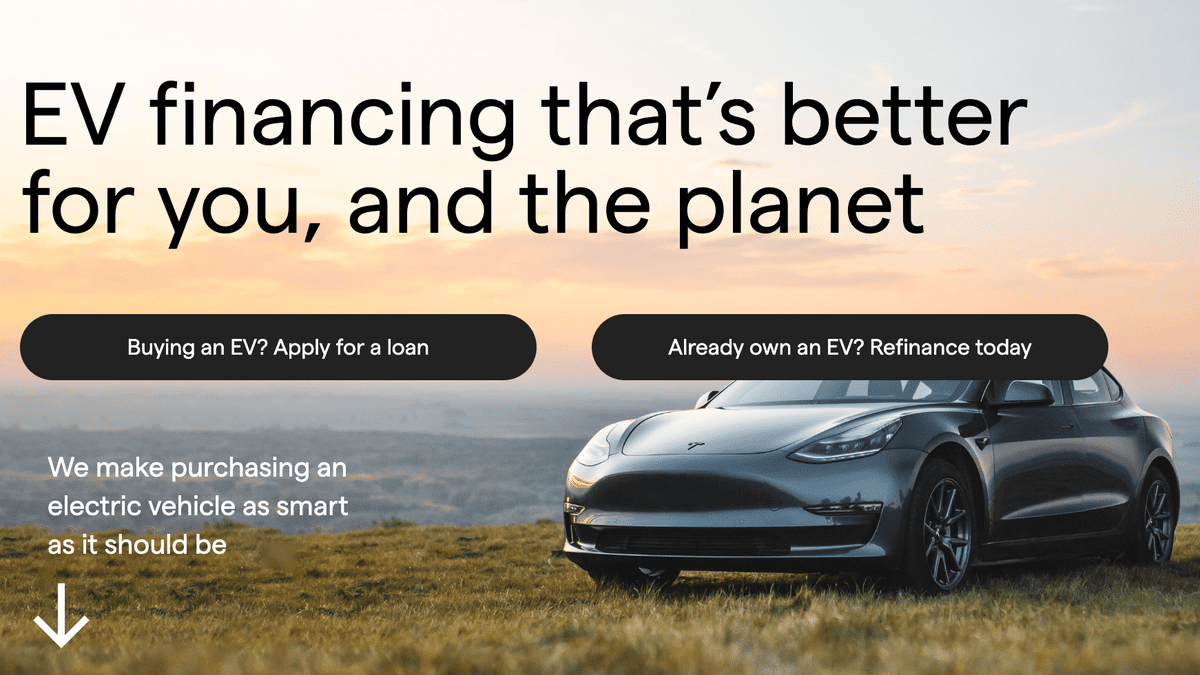This Startup's EV Balloon Loans Don't Sound Like The Best Idea

Screenshot: Tenet
EVs cost too much. With the average price of an EV approaching $55,000, the transition that everyone from the government to auto companies want may be slowing due to unaffordability. But one startup is looking to help get people into more EVs by trying to make them more affordable. The way they’re going about it though is … questionable.
The company, Tenet, was founded in 2021 and is based in New York. It says it wants to “make the climate-positive choice the smart financial choice,” by making the upfront costs of EV ownership easier to swallow so more people can get into EVs. An admirable goal, especially as EV costs rise and the Feds drag their feet on more tax credits; Tenet said Tuesday that it has raised $18 million in seed funding.
So just how does all this work? By cutting upfront costs. Keep in mind, nothing actually comes off the vehicle’s price. You still have to be able to afford that Model 3 or Ioniq 5 you’re looking at. But the company offers two different loans to customers. The first is regular vehicle financing through the company. Tenet says it offers competitive rates. This isn’t a big deal.
Their second mode of financing, a balloon loan, seems more questionable, even if they are far from the first to do it with cars. Tenet’s ride on the back of the residual value of the EV and its battery pack. We all know that EVs hold their value better than gas-powered vehicles, which is why a six-year-old Tesla Model S can still cost $45,000+. Based on this value, Tenet offers balloon loans, deferring a big payment later. Here’s Tenet’s own example of someone taking a balloon loan out on a standard 2022 Tesla Model 3 with a $43,990 MSRP. Remember, the residual value of the Model 3 is the thing that makes this all work:
72-month term$587/month payment$8,256 final balloon payment
The payment is so low because a chunk of the loan was deferred, or moved to the end of the loan. The more you defer, the lower your monthly payment, but the bigger the final payment. One downside is that the lower monthly payment could entice people to buy more car than they can actually afford.
Balloon loans are also more complex than standard car financing, and are riskier for the borrower and lender. Tenet also won’t talk interest rates, only to say they’re competitive. Tenet does give you three options for the end of your loan when the balloon payment comes due: pay it back, extend the term or turn the EV in. But eventually, the bill will come due in some form, and you might end up digging a deeper hole for yourself. You may also just end up selling the car to make the balloon payment, but who knows how much it will really be worth then? That’s the risk for both Tenet and you, the borrower.
It is, in other words, a mess that could be waiting to happen, when the real issue is probably that prices just need to come down on EVs. As always, in any case: If you can’t afford it, don’t buy it.


